Did you know that about 94% of women using the birth control patch find it effective in preventing pregnancy1? The patch is a convenient and reliable way to prevent pregnancy. But, many women worry if it can cause or make acne worse. If you’ve dealt with hormonal acne before, you might be concerned about the patch’s effect on your skin.
The patch contains estrogen and progestin, which prevent ovulation and pregnancy. It’s effective, but it can cause side effects like skin irritation and changes in menstrual bleeding1. Some women might also feel nausea, sore breasts, headaches, and mood swings when they start using it. But, these side effects usually get better after two months1.
Interestingly, the patch can help with many health issues, like acne, bone thinning, and certain cancers2. But, everyone reacts differently. Some women might find that it makes their acne worse or causes other skin problems.
Key Takeaways
- The birth control patch is a convenient and effective method of contraception, with typical use resulting in 94% effectiveness and perfect use resulting in 99% effectiveness1.
- Common side effects of the patch include skin irritation, nausea, sore breasts, headaches, and mood changes, which often improve after two months of use1.
- The patch can help lessen or prevent various health issues, including acne, bone thinning, cysts, certain cancers, infections, iron deficiency, and PMS2.
- Individual responses to the birth control patch can vary, and some women may experience worsening acne or other skin problems.
- It’s important to discuss any concerns about contraceptive side effects, including skin problems, with a healthcare provider to determine the best course of action.
How the Birth Control Patch Works
The birth control patch is a simple and effective way to prevent pregnancy. It releases hormones, like estrogen and progestin, through the skin3. These hormones stop ovulation, which is when an egg is released from the ovary.
Hormonal Effects on the Body
The patch gives more estrogen than birth control pills, about 60% more4. This can cause side effects like breast tenderness and headaches3. But, these side effects often go away after a few months.
It’s important to know the patch might not work as well for people who weigh more than 198 lbs3. Also, those with a BMI of 30 or higher might find it less effective4.
Preventing Ovulation and Pregnancy
The main job of the birth control patch is to stop ovulation. This makes it very hard for pregnancy to happen. With perfect use, it’s over 99% effective4. But, with typical use, it’s about 91% effective34.
The patch also makes cervical mucus thicker, making it hard for sperm to reach an egg. It also makes the uterine lining thinner, making it harder for an egg to implant and grow into a pregnancy.
| Contraceptive Method | Effectiveness in Preventing Pregnancy |
|---|---|
| Birth Control Patch (perfect use) | More than 99%4 |
| Birth Control Patch (typical use) | 91%34 |
| Birth Control Pills (perfect use) | More than 99%4 |
| Birth Control Pills (typical use) | 91%4 |
| Injected Progesterone | 96%5 |
| Contraceptive Intrauterine Devices (IUDs) | 99.9%5 |
Even though the birth control patch is very good at preventing pregnancy, it doesn’t protect against STIs. The best way to avoid STIs is to use condoms3.
Potential Side Effects of the Birth Control Patch
The birth control patch is usually safe, but some people might feel side effects. Millions have used the hormones in the patch for years. It’s good to know about the possible side effects6.
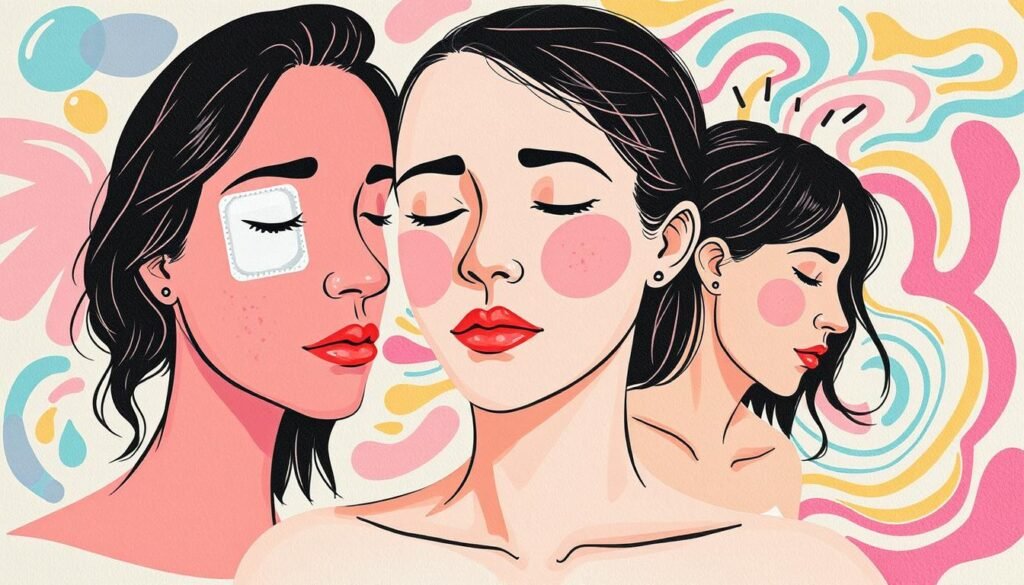
Common Side Effects
Common side effects include headaches, nausea, sore breasts, and changes in periods. You might also see spotting or skin reactions where the patch is placed6. These usually go away in 2-3 months6.
It can take up to two or three menstrual cycles for your body to adjust7.
Rare but Serious Side Effects
But there are serious side effects too. These include blood clots, gallbladder disease, and heart problems. Liver cancer and stroke are also risks78.
Women over 35 who smoke are at higher risk7. People with heart disease, high blood pressure, or diabetes should be careful too7.
Research shows the patch might raise estrogen levels more than birth control pills. This could increase the risk of blood clots.
When to Contact Your Healthcare Provider
If you have severe symptoms, call your doctor right away:
- Severe abdominal pain
- Chest pain
- Severe headaches
- Vision changes
- Yellowing of the skin or eyes
- Signs of a blood clot in the leg or eye
- Heart attack symptoms
- Stroke symptoms
- Jaundice
- Persistent breast lump
- Missed periods or other pregnancy signs
These could be signs of serious side effects8. If you’re worried about stopping the patch, talk to your doctor6.
Can Birth Control Patch Cause Acne?
Thinking about using the birth control patch? You might wonder if it can cause or make acne worse. The patch is very good at preventing pregnancy, with a 99.7% success rate when used perfectly9. It’s important to know how it might affect your skin.
Hormonal Imbalances and Acne
Hormonal changes can lead to acne. The patch has hormones that might affect how much oil your skin makes. This could cause pores to clog and lead to breakouts. But, how the patch affects acne can differ for everyone.
Some people might see their acne get better with the patch10. The hormones in it can help balance your menstrual cycle and reduce hormonal imbalances that cause acne. This could make your skin clearer for some users.
Individual Responses to the Birth Control Patch
Everyone reacts differently to the birth control patch and acne. Some might see their skin clear up, while others might get more breakouts. Things like your genes, skincare routine, and health can affect how your skin reacts to the patch’s hormones.
If you’re worried about the patch’s effect on your skin, talk to your healthcare provider. They can help you decide if the patch is right for you.
Keep an eye on your skin while using the patch. If you notice a big increase in acne or other skin problems, talk to your healthcare provider. They might suggest changing your skincare routine, trying a different birth control, or finding other treatments for hormonal imbalance acne.
| Factors Influencing Acne with the Birth Control Patch | Potential Impact |
|---|---|
| Hormonal fluctuations | May increase sebum production and lead to clogged pores and breakouts |
| Individual response | Some may experience improvement in acne, while others may notice worsening symptoms |
| Genetics and overall health | Can influence how the skin reacts to the hormones in the patch |
| Skincare routine | Proper cleansing, moisturizing, and sun protection can help manage acne symptoms |
In summary, the birth control patch can cause acne in some people, but it’s very personal. By working with your healthcare provider and watching how your skin reacts, you can figure out if the patch is right for you.
Managing Acne While Using the Birth Control Patch
If you’re dealing with acne while using the birth control patch, you’re not alone. About half of all women in their 20s and a third in their 30s get acne11. The patch can help reduce and prevent acne11. But, you might need to add some extra steps to keep your skin clear and healthy.

Skincare Routines for Acne-Prone Skin
Having a consistent skincare routine is key when treating acne from birth control. Use gentle, non-comedogenic, and oil-free products. These won’t clog your pores or irritate your skin. Clean your face twice a day with a mild cleanser and apply a light, non-greasy moisturizer to stay hydrated.
Adding acne-fighting ingredients to your routine can also help. Look for products with salicylic acid, benzoyl peroxide, or retinoids. They can unclog pores, reduce inflammation, and help skin cells turn over. Start with small amounts and be patient, as it may take weeks to see results.
Medications and Treatments for Hormonal Acne
If your acne doesn’t get better with good skincare, your doctor might suggest other treatments. Options include:
- Topical retinoids, like tretinoin or adapalene, to unclog pores and reduce inflammation.
- Oral antibiotics, such as doxycycline or minocycline, to control bacteria and reduce inflammation in severe cases.
- Anti-androgen medications, like spironolactone, to block androgens’ effects on the skin and reduce oil production.
- Other treatments include spironolactone and antibiotics, blue light therapy, and a regular skincare routine12.
In some cases, your doctor might suggest a different birth control method to manage your acne. The FDA has approved three combination monophasic contraception medications for acne treatment: Beyaz®, Estrostep FE®, and Yaz®12. Drospirenone, found in Yaz, is the most effective progestin for acne11.
It’s wise to talk to a dermatologist for personalized treatment if birth control pills don’t work or are not suitable12.
| Treatment | Effectiveness |
|---|---|
| Combination birth control pills (Yaz, Ortho Tri-Cyclen, Beyaz, Estrostep FE) | Proven to reduce acne11 |
| Birth control patch | Shown to reduce and prevent acne11 |
| Topical retinoids, oral antibiotics, anti-androgen medications | Help manage hormonal acne with birth control12 |
Managing acne while on the birth control patch takes time and patience. Stick to your treatment plan. If you have concerns or questions, don’t hesitate to talk to your healthcare provider about your skin health.
Conclusion
The birth control patch is a great way to prevent pregnancy, with a 99% success rate13. But, it can also cause side effects like acne. Some people might see their acne get better, while others might see it get worse.
Acne is common, affecting 70 to 87 percent of teens and 5 to 12 percent of adult women1415. If you’re worried about acne and birth control, talk to your doctor. They can suggest ways to help, like special skincare or different birth control options.
Studies show that some birth control can reduce acne by 55%15. But, it’s different for everyone. Finding the right birth control for your skin might take some time and effort. But, with your doctor’s help, you can find a solution that works for you.
FAQ
Can the birth control patch cause acne?
How does the birth control patch work to prevent pregnancy?
What are the common side effects of the birth control patch?
How can I manage acne while using the birth control patch?
What should I do if I experience serious side effects while using the birth control patch?
Can switching to a different form of birth control help with acne caused by the patch?
Source Links
- Birth Control Patch: How It Works, Side Effects & Benefits – https://my.clevelandclinic.org/health/articles/24490-birth-control-patch
- What Are the Benefits of the Birth Control Patch? – https://www.plannedparenthood.org/learn/birth-control/birth-control-patch/what-are-benefits-birth-control-patch
- Birth Control: Contraceptive Patch – https://www.nationwidechildrens.org/family-resources-education/health-wellness-and-safety-resources/helping-hands/birth-control-contraceptive-patch
- Birth Control Pill vs. Patch: Which Is Right for You? – https://www.webmd.com/sex/birth-control/birth-control-pill-versus-patch
- Is the Birth Control Patch Right for Me? – https://www.verywellhealth.com/birth-control-patch-7643416
- What are the side effects of the birth control patch? – https://www.plannedparenthood.org/learn/birth-control/birth-control-patch/birth-control-patch-side-effects
- Birth Control Patch Side Effects, Risks, and Other Things to Consider – https://www.healthline.com/health/birth-control-patch-side-effects
- Birth control patch – Mayo Clinic – https://www.mayoclinic.org/tests-procedures/birth-control-patch/about/pac-20384553
- Birth control patch – https://myhealth.alberta.ca/sexual-reproductive-health/birth-control/hormonal-birth-control/birth-control-patch
- Birth Control Patch – https://www.webmd.com/sex/birth-control/birth-control-transdermal-patches
- Does birth control help acne? – Dr. Michele Green M.D. – https://www.michelegreenmd.com/does-birth-control-help-acne
- Contraception That Also Treats Acne – https://health.clevelandclinic.org/best-birth-control-for-acne
- Birth control patch: Efficacy, benefits, and disadvantages – https://www.medicalnewstoday.com/articles/birth-control-patch
- Can Acne Be Caused by Birth Control? – https://www.healthline.com/health/acne-caused-by-birth-control
- Contraception and its impact on acne – https://www.contemporaryobgyn.net/view/contraception-acne


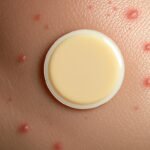
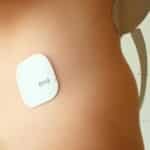
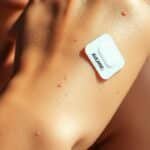
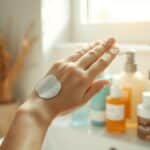

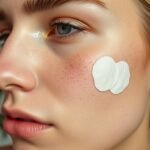
Interesting read, but isnt it high time we explore natural alternatives over hormonal birth control? Just thinking out loud here.
Interesting read, but why are we not promoting natural remedies for acne instead of relying on hormonal birth control patches?
Interesting read, but isnt messing with hormones like playing Russian Roulette with your body? Just a thought. #BalanceIsKey
Interesting read, but isnt it ironic how were so keen to control birth, yet still struggling to cure acne? Just a thought.
Just wondering, isnt it strange were messing with hormones to cure acne? What about natural remedies? Any thoughts on those?